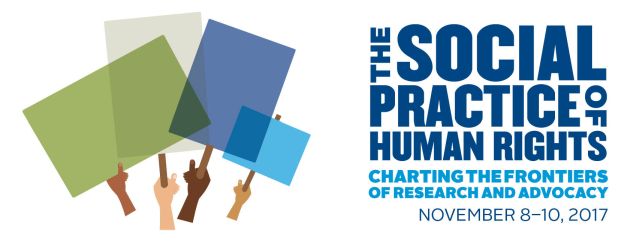
Start Date
11-8-2017 1:30 PM
Keywords
refugee, internally displaced person, forced migration, conflict, comparative
Abstract
The internal displacement of rural Colombians and displacement of Syrians in and out of Syria constitute some of the largest conflict-induced migrations in the world today.
Rural Colombians have been driven from mountainous areas of the country by conflict between the government, rebels of the the Revolutionary Armed Forces of Colombia (FARC), and paramilitaries and have entered urban spaces like Medellín in search of assistance allocated to internally displaced persons.
The majority of Syrian refugees fleeing the civil war in their country reside in Turkey, and many have made their way to Istanbul for the greater economic opportunities that the largest urban center in Turkey can provide, as well as proximity to migration opportunities to Europe.
Although internally displaced Colombians and Syrian refugees have different patterns of migration and rights of legal citizenship, their experiences of space and the right to belong are similar in many key ways. Both groups experience heavy state surveillance and barriers to recognition and the right to exist in their physical and sociopolitical space as legitimate members of the space. These issues represent barriers to the political and economic incorporation of displaced Colombians and Syrians. While not being denied the right of movement, the treatment of these displaced peoples constitutes a human rights violation by excluding them from social and economic membership in the state. The similarities across their experiences, despite one group having political citizenship while the other group does not, point to the challenges of displaced populations to exercise human rights.
Included in
Displacement, Urban Populations, and the Right to Space and Place: Syrians in Istanbul and Colombians in Medellín
The internal displacement of rural Colombians and displacement of Syrians in and out of Syria constitute some of the largest conflict-induced migrations in the world today.
Rural Colombians have been driven from mountainous areas of the country by conflict between the government, rebels of the the Revolutionary Armed Forces of Colombia (FARC), and paramilitaries and have entered urban spaces like Medellín in search of assistance allocated to internally displaced persons.
The majority of Syrian refugees fleeing the civil war in their country reside in Turkey, and many have made their way to Istanbul for the greater economic opportunities that the largest urban center in Turkey can provide, as well as proximity to migration opportunities to Europe.
Although internally displaced Colombians and Syrian refugees have different patterns of migration and rights of legal citizenship, their experiences of space and the right to belong are similar in many key ways. Both groups experience heavy state surveillance and barriers to recognition and the right to exist in their physical and sociopolitical space as legitimate members of the space. These issues represent barriers to the political and economic incorporation of displaced Colombians and Syrians. While not being denied the right of movement, the treatment of these displaced peoples constitutes a human rights violation by excluding them from social and economic membership in the state. The similarities across their experiences, despite one group having political citizenship while the other group does not, point to the challenges of displaced populations to exercise human rights.


